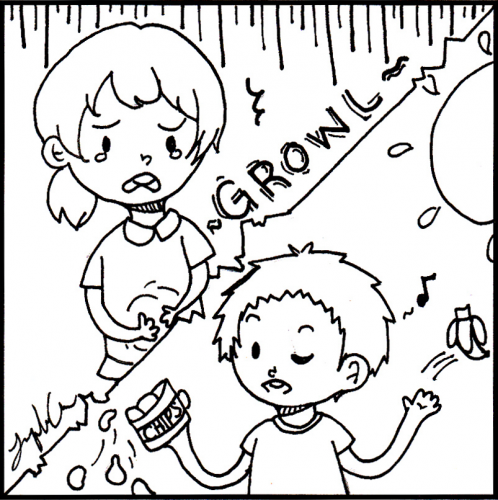Love Food, Abhor Waste—Don’t be Trashy!
JACQUELYN LOI
BRIANA THAI
Staff Writers
The metaphor, “you’re flushing money down the toilet,” while true in essence, should be changed to “you’re throwing money on the side of the street.”
Although millions of Americans are struggling to put food on their tables, 40 to 50 percent of the food harvested in America is going to waste, according to the New York Times.
The U.S. annually spends $1 million just to dispose of food waste. According to the National Defense Resource Council, more than 20 pounds of food is wasted each month for each of the 311 million Americans. An estimated amount of food that Americans waste daily can fill the Rose Bowl. That is just a little too much food and money wasted, but that could just be us. Many resources, such as water, energy, pesticides and fertilizers, are also used to grow the food we eat. This means that when we waste food, we are also wasting the resources needed to grow the food. 90 percent of Americans toss good food into the garbage because they think that the “sell by” and “best before” dates on food containers indicate safety. In reality, none of them relate to edibility and safety reasons. Most foods are edible 1-2 weeks longer than what the expiration dates say.
Some think that food can be decomposed and therefore believe that it is okay to send it to the landfills. Food needs light and air for proper decomposition and landfills do not have that available. Instead, as the food decomposes, it releases methane, a greenhouse gas that traps 23 times as much heat in the atmosphere than the same amount of carbon dioxide.
While 50 million people in America do not have access to enough food, the ones who have food waste it. One in three Americans are in poverty and are food insecure, meaning that they do not have the resources to obtain the sufficient vitamins which are crucial to maintaining a healthy lifestyle. Such a diet can result in health issues—the worst case scenario being death from dehydration or starvation.
An average family of four throws out an estimated $1,350 a year. Reducing food waste will not only help the environment, but it may also help financially.
One of the many ways to reduce food waste is by writing a shopping list and then sticking by it. Do not be tempted to buy too much food since there is always the option to return for more groceries if necessary. Additionally, using leftover ingredients for future meals is an excellent way to minimize waste. For instance, some scraps of vegetables from today could be used to make a delicious soup for tomorrow. Making just enough food to feed your family—smaller portions with an option of minimal second helpings—is yet another method to decrease waste. Additional financial benefits come from reducing waste; some trash haulers do not charge as much if food waste is separated from other trash and sent for composting instead of sent to landfills. Since some food waste cannot be avoided, a compost bin can be set up for any biodegradable edibles. The resulting rich, valuable compost will benefit plants as well as finances.
Together, if we can slowly reduce food waste over time, we will not only be helping ourselves financially, but we will also be helping our environment and the hunger crisis in America. Don’t you think that this is worth the effort to at least attempt to reduce our waste?
